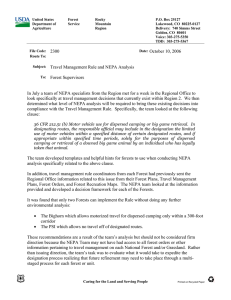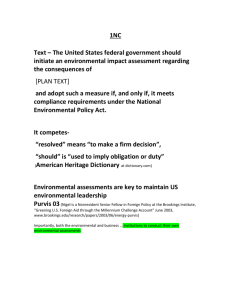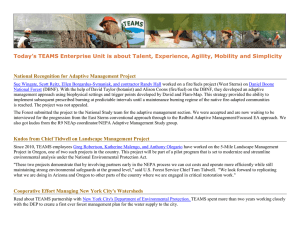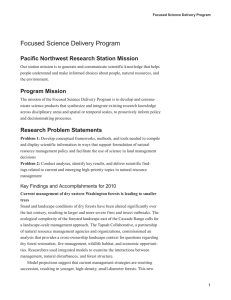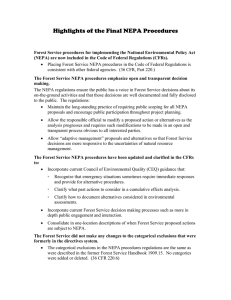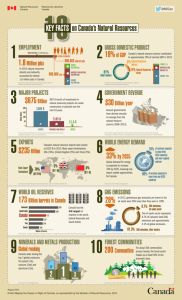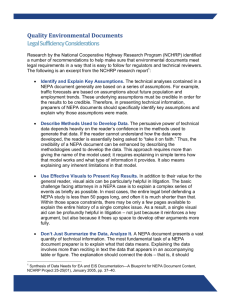USDA Forest Service NFS – Air Resource Management Briefing Paper
advertisement
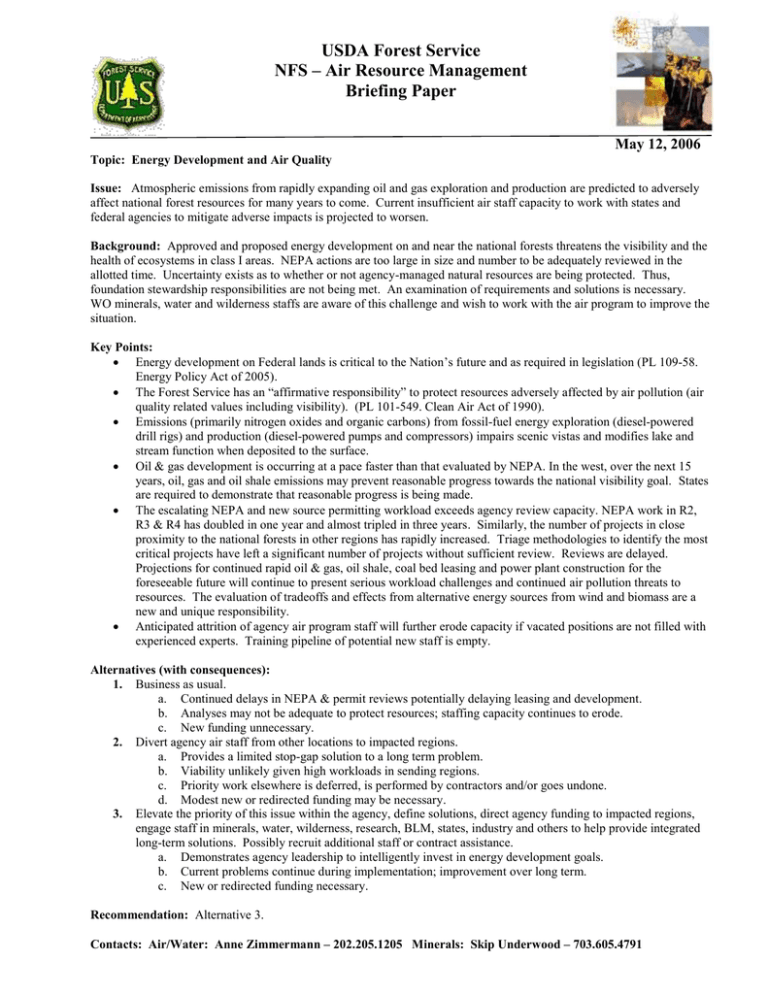
USDA Forest Service NFS – Air Resource Management Briefing Paper May 12, 2006 Topic: Energy Development and Air Quality Issue: Atmospheric emissions from rapidly expanding oil and gas exploration and production are predicted to adversely affect national forest resources for many years to come. Current insufficient air staff capacity to work with states and federal agencies to mitigate adverse impacts is projected to worsen. Background: Approved and proposed energy development on and near the national forests threatens the visibility and the health of ecosystems in class I areas. NEPA actions are too large in size and number to be adequately reviewed in the allotted time. Uncertainty exists as to whether or not agency-managed natural resources are being protected. Thus, foundation stewardship responsibilities are not being met. An examination of requirements and solutions is necessary. WO minerals, water and wilderness staffs are aware of this challenge and wish to work with the air program to improve the situation. Key Points: Energy development on Federal lands is critical to the Nation’s future and as required in legislation (PL 109-58. Energy Policy Act of 2005). The Forest Service has an “affirmative responsibility” to protect resources adversely affected by air pollution (air quality related values including visibility). (PL 101-549. Clean Air Act of 1990). Emissions (primarily nitrogen oxides and organic carbons) from fossil-fuel energy exploration (diesel-powered drill rigs) and production (diesel-powered pumps and compressors) impairs scenic vistas and modifies lake and stream function when deposited to the surface. Oil & gas development is occurring at a pace faster than that evaluated by NEPA. In the west, over the next 15 years, oil, gas and oil shale emissions may prevent reasonable progress towards the national visibility goal. States are required to demonstrate that reasonable progress is being made. The escalating NEPA and new source permitting workload exceeds agency review capacity. NEPA work in R2, R3 & R4 has doubled in one year and almost tripled in three years. Similarly, the number of projects in close proximity to the national forests in other regions has rapidly increased. Triage methodologies to identify the most critical projects have left a significant number of projects without sufficient review. Reviews are delayed. Projections for continued rapid oil & gas, oil shale, coal bed leasing and power plant construction for the foreseeable future will continue to present serious workload challenges and continued air pollution threats to resources. The evaluation of tradeoffs and effects from alternative energy sources from wind and biomass are a new and unique responsibility. Anticipated attrition of agency air program staff will further erode capacity if vacated positions are not filled with experienced experts. Training pipeline of potential new staff is empty. Alternatives (with consequences): 1. Business as usual. a. Continued delays in NEPA & permit reviews potentially delaying leasing and development. b. Analyses may not be adequate to protect resources; staffing capacity continues to erode. c. New funding unnecessary. 2. Divert agency air staff from other locations to impacted regions. a. Provides a limited stop-gap solution to a long term problem. b. Viability unlikely given high workloads in sending regions. c. Priority work elsewhere is deferred, is performed by contractors and/or goes undone. d. Modest new or redirected funding may be necessary. 3. Elevate the priority of this issue within the agency, define solutions, direct agency funding to impacted regions, engage staff in minerals, water, wilderness, research, BLM, states, industry and others to help provide integrated long-term solutions. Possibly recruit additional staff or contract assistance. a. Demonstrates agency leadership to intelligently invest in energy development goals. b. Current problems continue during implementation; improvement over long term. c. New or redirected funding necessary. Recommendation: Alternative 3. Contacts: Air/Water: Anne Zimmermann – 202.205.1205 Minerals: Skip Underwood – 703.605.4791



